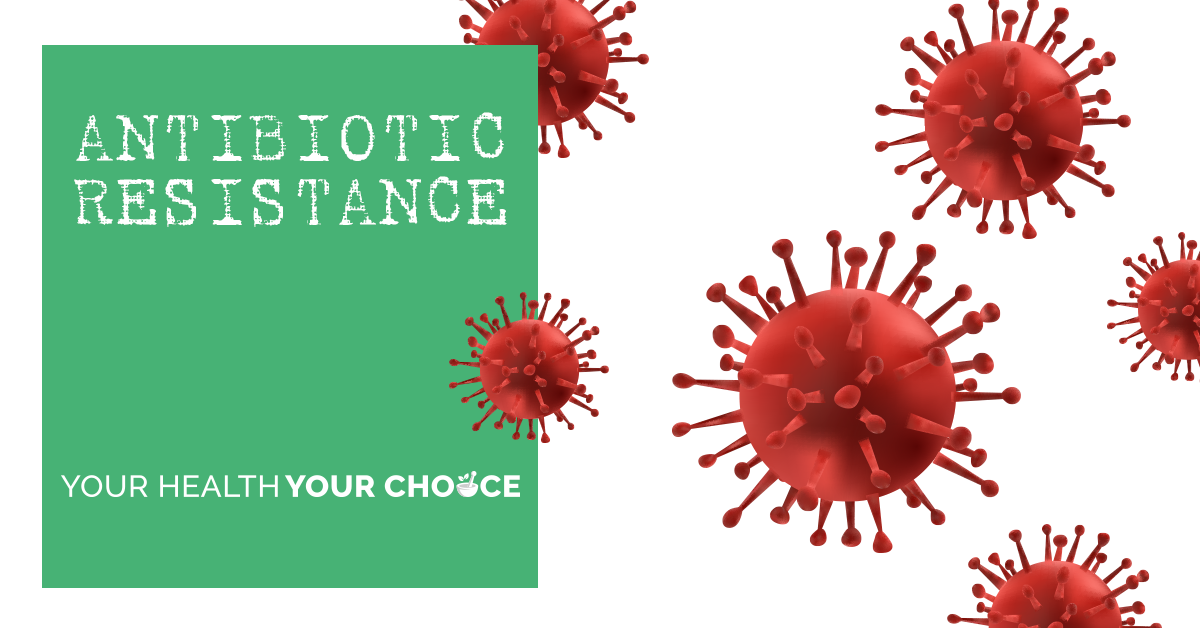Resistance is futile – the rise of global superbugs

This week (18-24 November 2019) marks World Antibiotic Awareness Week, targeting the global crisis of antibiotic resistance. The World Health Organization (WHO) states that this is one of the biggest threats to human health today, and our time with antibiotics may be running out.
Despite this, antibiotics are still being routinely over-prescribed while international guidelines call for more judicious usage.
An independent review has predicted that antibiotic resistance could potentially kill 10 million people every year by 2050, and without direct action, health authorities around the world are becoming increasingly concerned that routine operations like caesarean sections, hip replacements and many other straightforward, everyday operations could become too dangerous to perform.
What is antibiotic resistance?
Antibiotic resistance is when bacteria stops responding to antibiotics. This arises when the bacteria change and adapt in response to the frequent use of antibiotics, leading to infections that become increasingly difficult to treat and are often referred to as ‘superbugs’.
Other serious implications include infections taking longer to heal; infections getting worse and leading to serious complications; and infections becoming more likely to spread to the rest of the community and because the bacteria are resistant, the antibiotic may not work for other people, further spreading the infection.
Now we are seeing the widespread emergence of new and the re-emergence of old infectious diseases as a direct result. Urgent and coordinated action is required in every region of the world. With multi-resistant organisms proliferating, appropriate alternative treatments to these conditions are urgently required.
Through the Australian Lens
Globally, the most common infection treated with antibiotics is acute respiratory infections (ARI). While America prescribes 41% of antibiotics for ARIs, Australians are even heavier users accounting for 51% of all antibiotic prescriptions in general practice alone, despite little evidence of effectiveness.
The Australian Therapeutic Guidelines advise prescriptions to be no more than 23% of the current rate of use. In fact, the scale of the problem has been known for many years and well researched.
For example, a systematic review from 2010 showed that individuals prescribed with an antibiotic for a respiratory infection were “twice as likely to develop bacterial resistance to that antibiotic”.
Can Natural Therapies play a role?
For millennia traditional medicine systems have employed a wide variety of therapeutic substances to deal with infections. Some are well-known kitchen herbs such as Garlic (Allium sativum) and Onion (Allium cepa). A range of other herbs with antiseptic/ antimicrobial properties include Ginger (Zingiber officinalis), Elderberry (Sambucus nigra) and Andrographis (Andrographis paniculata), which are employed by herbalists and naturopaths depending on a person’s individual symptoms.
The UK National Health Service (NHS) has recently announced a 5-year antimicrobial action plan and a 20-year vision to tackle the mounting problem of antibiotic resistance. In the first intervention of its kind, the NHS is funding a trial on the traditional herbal medicine Andrographis as an alternative to antibiotics. Andrographis has been traditionally used to treat symptoms of coughs, colds, sore throats and sinusitis in Eastern traditional medicine.
Homeopathy has also shown to be effective in treating ARIs in the paediatric population. For example, a recent randomised, controlled, multinational clinical trial assessing the effectiveness and safety of homeopathic medicine in paediatric upper respiratory tract infections with fever led to earlier symptom alleviation, reduced the use of symptomatic drugs, was well tolerated, and overall illness severity was significantly lower.
Such findings are highly clinically relevant in the goal to avoid antibiotic use.
Another study published in the British Medical Journal in 2018 showcased that NHS England GP surgeries employing GPs who offer homeopathy, acupuncture or herbal remedies, prescribe 22 percent fewer antibiotics. The biggest decline observed was 24% for chest infections.
This is considerable and importantly, brings the number of antibiotic prescriptions into parity with international guidelines.
Australia’s international obligations
Australia is a signatory to the WHO, which requires member States to develop proactive policies to integrate traditional medicine into their healthcare systems in line with the WHO Strategy on Traditional Medicines 2014-23. To date, Australia has not taken steps to honour its commitments under the Strategy.
Without addressing major public health risks such as antibiotic resistance head-on and integrating different approaches, Australia risks falling further behind the rest of the world with no real plan to tackle the problem.
SIGN and SHARE the petition below to protect right of choice in healthcare.
« Return to News & Features
